While de-certifying the Iran nuclear deal wouldn’t amount to walking away from the agreement, it certainly places it in peril, argue Ilan Goldenberg and Mara Karlin. This piece originally appeared in The Atlantic.
In several days, President Donald Trump will almost certainly refuse to certify that Iran is complying with its obligations under the nuclear deal. While this doesn’t amount to walking away from the agreement, it certainly places it in peril.
The deal’s critics focus on two central points: expiration dates and bad behavior. The first point underscores concerns that elements of the agreement, or the Joint Comprehensive Plan of Action (JCPOA), expire in 10 to 15 years, after which limits on Iran’s uranium enrichment capability go away. The second point highlights Iran’s continued destabilizing activities, including ballistic missile development and support for surrogates and proxies in Iraq, Lebanon, Syria, and Yemen.
These questions are real. But for us, two former Pentagon officials in the Bush and Obama administrations who worked on Iran and the broader Middle East, today’s debates sound almost quaint compared to the questions we were grappling with in those years. These days, we cannot forget where America was before the breakthroughs of 2013 and 2015, which first froze the Iranian nuclear program and then rolled it back.
The fundamental question we faced while working at the Pentagon was what to do if the president of the United States had to make a terrible choice of living with a nuclear-armed Iran or taking military action. This was not theoretical—Iran’s nuclear program was making progress. By 2013, it had enough enriched uranium for a small nuclear arsenal of roughly six to eight bombs. And if it chose to remove any final restraints and “dash” for a weapon, it would take one to two months for it to possess enough highly enriched uranium to build a nuclear weapon. Ali Khamenei, the supreme leader of Iran, seemed to have little interest in striking the type of deal that might be acceptable to Washington. The situation was further complicated by then-president Mahmoud Ahmadinejad, a hardline firebrand. Iran’s brazen efforts to challenge the United States and its partners across the region only deepened the Pentagon’s concern about a nuclear-armed Tehran, which could proliferate its capabilities, inspire copycats, and inhibit the willingness of decision-makers in the United States and the Middle East to counter its bad behavior.
For those of us working these issues every day, the possibility of a diplomatic breakthrough seemed remote. The much more likely scenario was that we would eventually run out of time, forcing the president to choose between several unsavory options.
Behind door number one: military action to strike Iran’s nuclear facilities. This would have set its nuclear program back temporarily, while doing little to destroy its weapons-building expertise. Bombing may simply have produced an Iran even more committed to the pursuit of a weapon.
Such a course of action would have also come with countless other risks. In response, Iran could have more aggressively directed its proxies against U.S. forces in the region, especially in Iraq, where they were already responsible for the deaths of many American troops. They could have conducted terrorist attacks on U.S. facilities around the globe, or directed Hezbollah to attack American and Israeli targets, potentially triggering a conflagration in the Levant. They could have also used their ballistic and cruise missiles to strike at U.S. bases in Qatar, the United Arab Emirates, Bahrain, and Kuwait, or at Israel. And they could drop mines in the Strait of Hormuz, disrupting world oil markets and spiking prices.
The United States would have responded, of course, with a substantial military operation that would have destroyed much of Iran’s military infrastructure—and potentially more. But it would then have been stuck in the Middle East for years, trying to contain a more aggressive and aggrieved Iran. That, in turn, would require a military presence in the Middle East far larger than the one of today.
The reality is that this outcome would have been very bad for Iran—indeed worse for the Iranians than the Americans. But it was also a costly, unappealing option for the United States.
The alternative was acquiescence to a nuclear-armed Iran. This scenario was also deeply problematic. Iran could theoretically decide, out of the blue, to conduct a nuclear strike against Israel or other U.S. partners, but we did not judge the regime to be suicidal, and believed this outcome unlikely—assuming Tehran maintained rigorous command and control over its arsenal. It could also potentially result in the transference of nuclear arms to Hezbollah, though that also seemed unlikely, as Iran was pretty judicious about the types of weapons it generally held for itself versus those it made available to its partners.
The bigger concerns were how Iran would behave with a nuclear umbrella, and how the region—and Washington—would react. Saudi Arabia may have chosen to respond to an Iranian bomb with one of its own, sparking an arms race in the world’s most unstable region. Israel already has an arsenal of nuclear weapons that it does not publicly acknowledge. Now imagine another war between Israel and Hezbollah in Lebanon, a relatively common occurrence—but one in which Iran threatens to use nuclear weapons if Israel refuses to back off. This would be the Middle East equivalent of the Cuban missile crisis or an India-Pakistan nuclear crisis, but with significantly greater risk of miscalculation.
During our time at the Pentagon, a third harrowing possibility was that Israel would choose to strike Iran’s nuclear program, perhaps without first telling Washington. The question was whether Iran would view the United States as complicit in such a strike, given its close strategic relationship with Israel, and retaliate, not just in a limited way against Israel, but more broadly against U.S. interests, starting a regional war.
There were intense debates in Israel about this option. At one point, there were even news stories that Benjamin Netanyahu, Israel’s prime minister, ordered such a strike, only for his security officials to balk. Ultimately, it seemed that Israel calculated that the risks to the U.S.-Israel security relationship were too high and an American strike was preferable. But for years, U.S. officials were on constant alert that Israel might choose to take action.
Recalling this recent history today offers perspective as the Trump administration engages in the current debate about the future of the JCPOA.
After President Trump fails to certify Iranian compliance—going against the assessments of the intelligence community, many of his own cabinet officials, the International Atomic Energy Agency, and European allies—the path forward is unclear. Congress will have to decide whether to respond by re-imposing sanctions. If it does, the JCPOA falls apart. Many U.S. allies will balk, and the likely outcome is a leaky, weak international sanctions regime that will not bring Iran back to the table, but will free it of its nuclear obligations under the deal.
But even if Congress shows restraint, this step may still mark a blow to the JCPOA, shaking the confidence of the international community and giving Iran the high ground in arguing that the United States is not acting in good faith by taking the first step to dismantling the agreement.
Issues with sunset clauses and ballistic missile programs are valid criticisms of the deal. And vitriol toward Iran’s regional behavior merits serious attention, albeit separate from the nuclear file. But none of them merit the risks the Trump administration is now inviting.
Without the JCPOA, the United States would have, in the years between 2013 and 2016, likely faced much more profound questions of war and peace. As policymakers who work on the Middle East, we are used to choosing among terrible options, but these felt especially ugly.
If President Trump chooses not to certify Iranian compliance with the nuclear agreement and in the weeks ahead takes risky steps that may eventually unravel it, we will not immediately face a crisis. But over time Iran is likely to restart its deliberate march to a nuclear bomb. This will not inevitably lead to war. But it will mean a significant increase in the risk that, whether it be tomorrow or 10 years down the road, a U.S. president will face the same difficult question we wrestled with years ago: risk a major war with Iran, or acquiesce to an Iranian nuclear weapon.
The Brookings Institution is committed to quality, independence, and impact.
We are supported by a diverse array of funders. In line with our values and policies, each Brookings publication represents the sole views of its author(s).

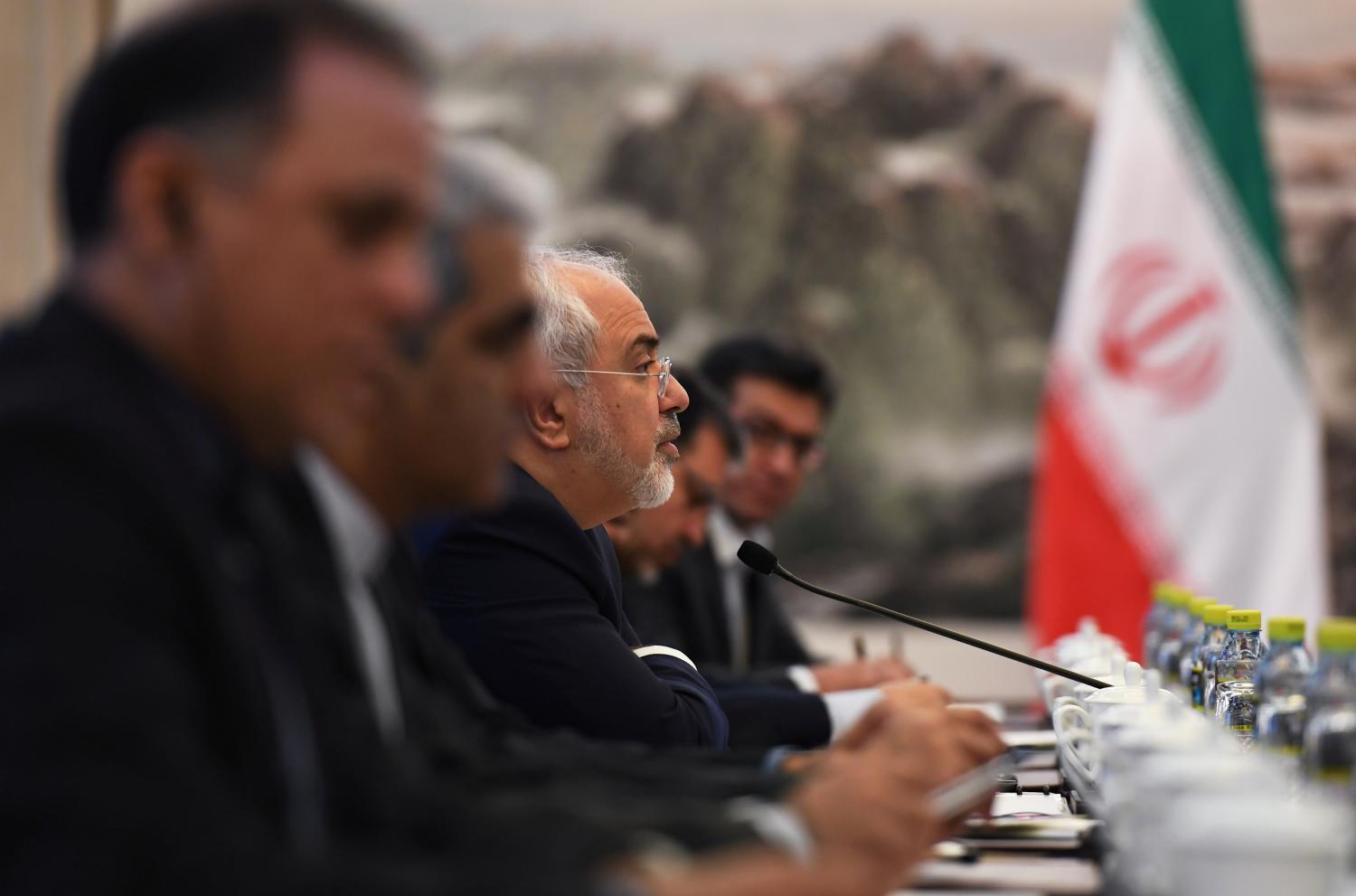
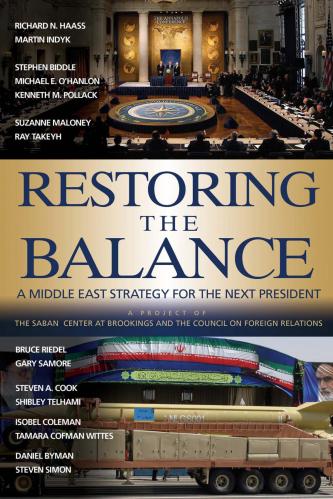
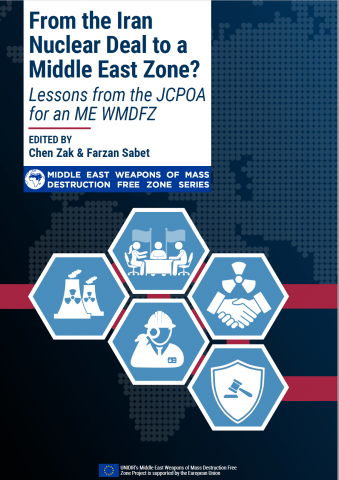

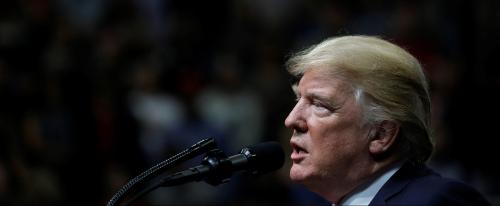
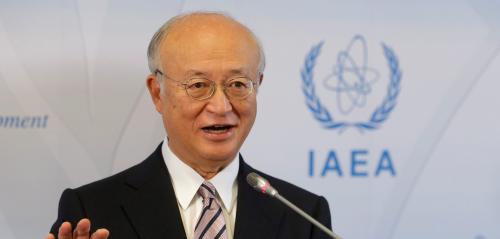
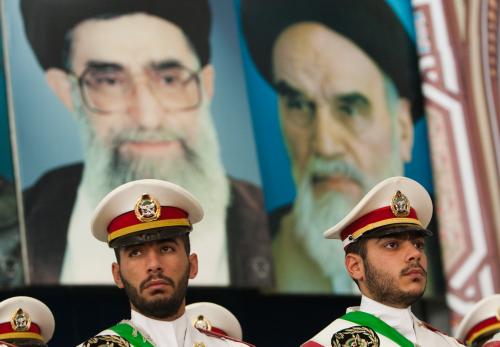





Commentary
Ending the Iran deal is an invitation to war
October 11, 2017